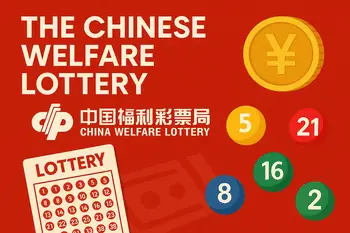
Relocating to China as an expat family can be an exciting journey, but it also brings challenges—especially when it comes to selecting the right school for your children.
With a wide range of educational options available, it’s essential to carefully evaluate your choices to ensure your child receives a high-quality education that meets their needs.
This guide will walk you through the key factors to consider when choosing a school for your expat child in China, with examples, resources, and practical tips to help you make an informed decision.
1. Understand the Types of Schools Available
In China, expat families can choose from three main types of schools, each with its own advantages and challenges:
Public Schools
- Overview: Funded by the government, public schools follow the Chinese national curriculum. They are ideal for families who want their children to immerse themselves in the local culture and language.
- Language of Instruction: Mandarin, which can be a significant barrier for non-native speakers.
- Pros: Affordable tuition and cultural immersion.
- Cons: Limited support for non-Mandarin speakers and a highly competitive academic environment.
- Example: Beijing No. 4 High School International Campus.
Private Schools
- Overview: Private schools in China often offer a mix of Chinese and international curricula, with bilingual education being a common feature.
- Language of Instruction: Mandarin and English.
- Pros: Smaller class sizes, more resources, and a balance between local and international education.
- Cons: Higher tuition fees than public schools.
- Example: YK Pao School, a bilingual private school in Shanghai.
International Schools
- Overview: Designed specifically for expat families, international schools follow globally recognized curricula such as the International Baccalaureate (IB), British, or American systems.
- Language of Instruction: English.
- Pros: Familiar teaching methods, diverse student bodies, and strong academic reputations.
- Cons: High tuition fees and limited availability in smaller cities.
- Example: Dulwich College Beijing, which offers a British curriculum.
2. Evaluate the Curriculum
The curriculum is one of the most important factors to consider, as it determines the academic structure and future opportunities for your child.
Here are the most common options:
International Baccalaureate (IB)
- Overview: A globally recognized program emphasizing critical thinking, global awareness, and academic rigor.
- Best For: Families seeking a flexible curriculum that is accepted by universities worldwide.
- Example: Western International School of Shanghai (WISS), a fully accredited IB World School.
British Curriculum
- Overview: Structured and exam-focused, leading to qualifications such as IGCSEs and A-Levels.
- Best For: Families planning to return to the UK or countries that recognize British qualifications.
- Example: The British School of Guangzhou.
American Curriculum
- Overview: Flexible and broad, culminating in a high school diploma and Advanced Placement (AP) courses.
- Best For: Families planning to move to or send their children to universities in the US.
- Example: Shanghai American School.
3. Check Accreditation and Reputation
Accreditation ensures that a school meets international quality standards.
Look for schools accredited by organizations such as:
- Council of International Schools (CIS)
- New England Association of Schools and Colleges (NEASC)
- Western Association of Schools and Colleges (WASC)
Additionally, research the school’s reputation by:
- Reading reviews from other expat families on forums like International Schools Database.
- Checking the school’s performance in international assessments.
4. Consider Location and Facilities
The school’s location and facilities can significantly impact your child’s experience.
Here’s what to look for:
- Proximity: Choose a school within a reasonable distance from your home to minimize commute times.
- Facilities: Evaluate classrooms, laboratories, sports fields, and arts spaces. For example, Wellington College International Shanghai is known for its state-of-the-art facilities.
- Safety: Ensure the school has robust safety measures, including secure campuses and emergency protocols.
5. Understand the Costs
Education in China can be expensive, especially at private and international schools. Here’s what to consider:
- Tuition Fees: International schools typically charge between ¥100,000 and ¥400,000 per year, depending on the city and school.
- Additional Costs: Factor in registration fees, uniforms, transportation, and extracurricular activities.
- Example: Nord Anglia International School Shanghai, Pudong charges ¥262,385 to ¥375,196 annually.
6. Visit the Schools
Whenever possible, visit the schools you are considering.
This will give you a firsthand look at the environment, facilities, and teaching methods.
During your visit:
- Observe the classroom environment and teacher-student interactions.
- Assess the school culture to see if it aligns with your family’s values.
- Inquire about support services, such as counseling, language assistance, and special education.
7. Consider Special Needs Education
If your child has special educational needs (SEN), ensure the school can provide adequate support.
Some international schools, like The International School of Beijing (ISB), offer dedicated SEN programs.
8. Involve Your Child in the Decision
Involving your child in the decision-making process can help them feel more comfortable and excited about the move.
Discuss their preferences, concerns, and interests, and consider their feedback when choosing a school.
9. Explore Online and Hybrid Learning Options
With the rise of online education, some schools now offer hybrid or fully online programs.
This can be a flexible option for families who travel frequently or face uncertainties.
For example, Keystone Academy in Beijing offers online learning options.
Conclusion
Choosing the right school for your expat children in China requires careful consideration of various factors, including the type of school, curriculum, accreditation, location, facilities, costs, and your child’s preferences.
By taking the time to research and visit potential schools, you can ensure your child receives a high-quality education that supports their academic and personal development.
For more information, consult resources like the International Schools Database or reach out to local expat communities for firsthand advice.


